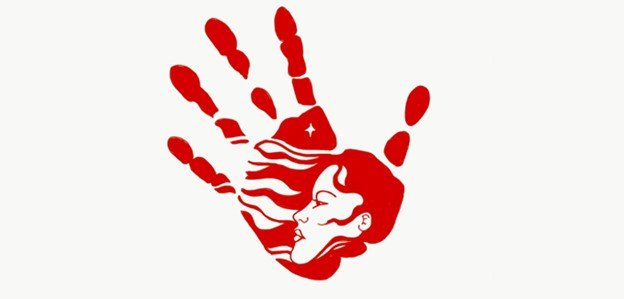June and July 2025 Book Display: Missing and Murdered Indigenous Women and Girls Crisis

From MMIWG2S [photograph], by Brianna Wentz, 2021, Teen Talk (https://teentalk.ca/2021/09/28/mmiwg2s-2/).
by Michelle K. Mitchell, Reference and Instruction Librarian
The Missing and Murdered Indigenous Women and Girls (MMIWG) crisis refers to the disproportionately high rates of violence, disappearance and murder experienced by Indigenous women, girls and Two-Spirit people across North America, particularly in the United States and Canada.
The crisis compounds due to the lack of consistent and comprehensive data collected by both countries. The National Crime Information Center reported in 2016 that there were 5,712 cases of missing American Indian and Native Alaskan women and girls; however, the U.S. Department of Justice’s federal missing persons database only had records of 116 cases. Data collection remains difficult because of poor record-keeping, underreporting, racial misclassification and bias in media coverage. Those reasons combined create an inaccurate picture because the reports (or lack thereof) minimize the extent to which Indigenous women and girls experience violence. The inadequate data collection led to further distrust between Indigenous communities and authorities. In 2017, the Urban Indian Health Institute released a study that aimed to assess Missing and Murdered American Indian and Native Alaskan women and girls across United States cities.
MMIWG brings awareness to the disproportionate violence Indigenous women face. In the U.S., Indigenous women are murdered at a rate more than 10 times the national average in some regions. This crisis is deeply rooted in systemic racism, colonization, forced assimilation, jurisdictional gaps between federal, state/provincial, and tribal authorities, and the loss of Indigenous sovereignty and cultural identity. Grassroots movements, such as MMIWG, are essential to demanding justice and raising awareness for Indigenous communities. These movements highlight important messages, such as “Stop the Violence: No More Stolen Sisters.”
There is also a recent call for this movement to be more gender and people neutral inclusive to recognize that this crisis also affects men, boys, infants and the elderly. Eighty-two percent of men experience violence in their lifetime and Native children are more likely to experience trauma over their non-Native peers.
Governments in Canada and the U.S. are making strides toward better actions and are acknowledging the crisis. Both Canada and the U.S. recognize May 5th as the official MMIW Day. Every year, individuals are encouraged to wear red and attend marches to raise awareness and fight against the injustices. In 2019, Canada labeled MMIWG as genocide and released a National Inquiry to investigate more thoroughly. The U.S. launched the initiative Operation Lady Justice in 2019 and passed legislation like Savanna’s Act in 2020, but more intentional action and resources are still needed to stop the violence.
Please take time to look at the carefully curated list of resources on the guide and visit our display on the first-floor of Bird Library to learn more about the MMIWG crisis. The display will be up for the months of June and July. Be an advocate and support our Indigenous communities.
